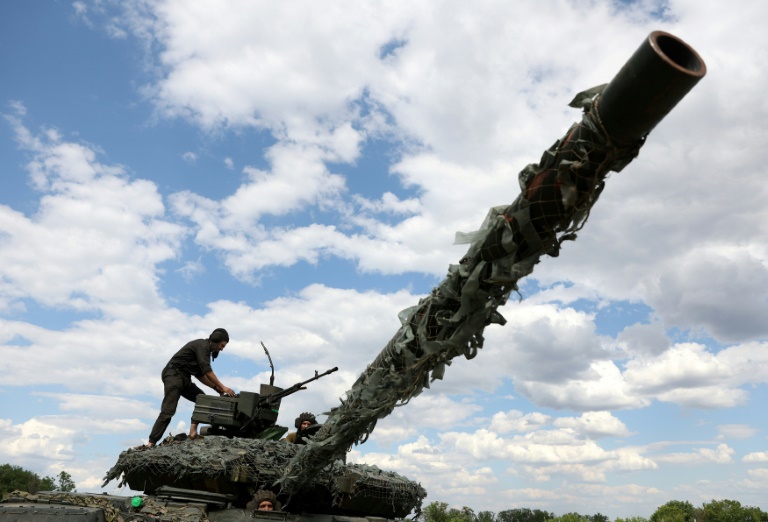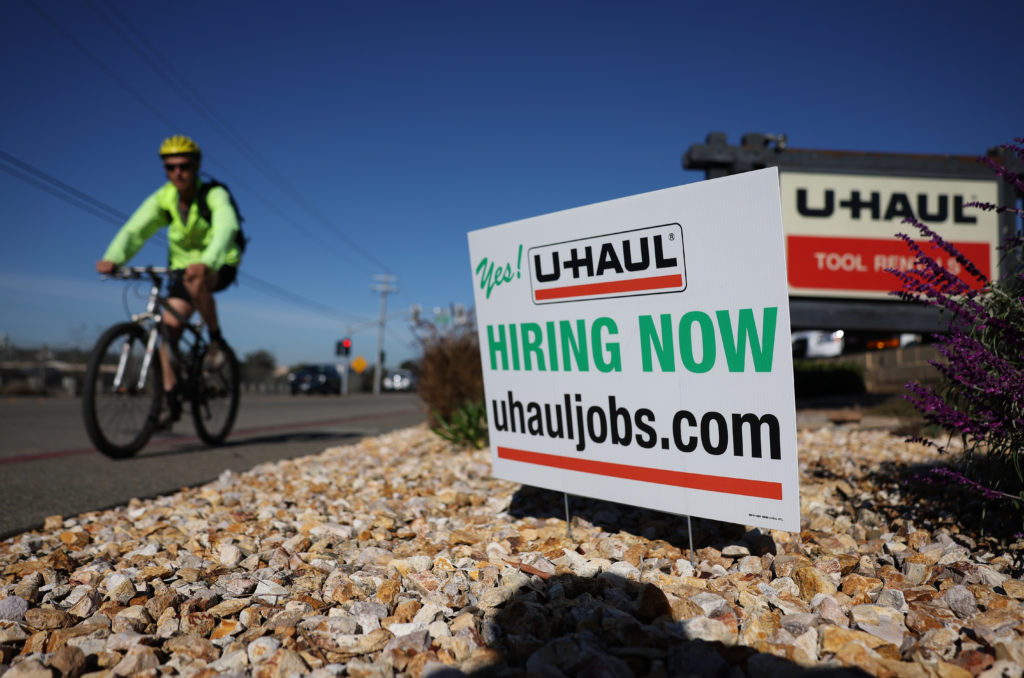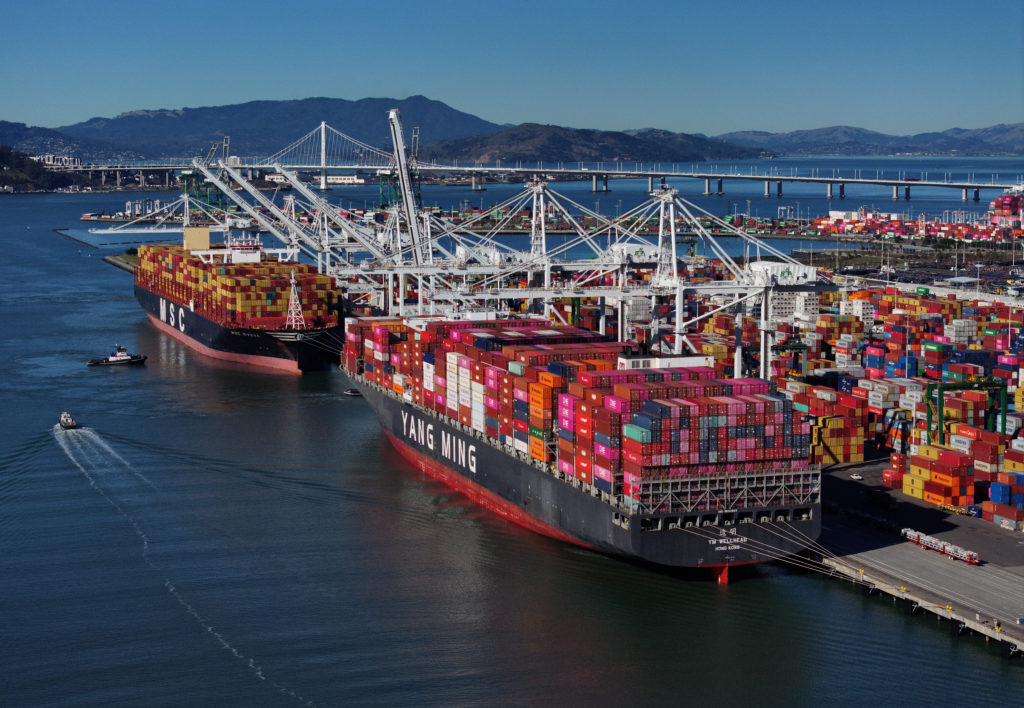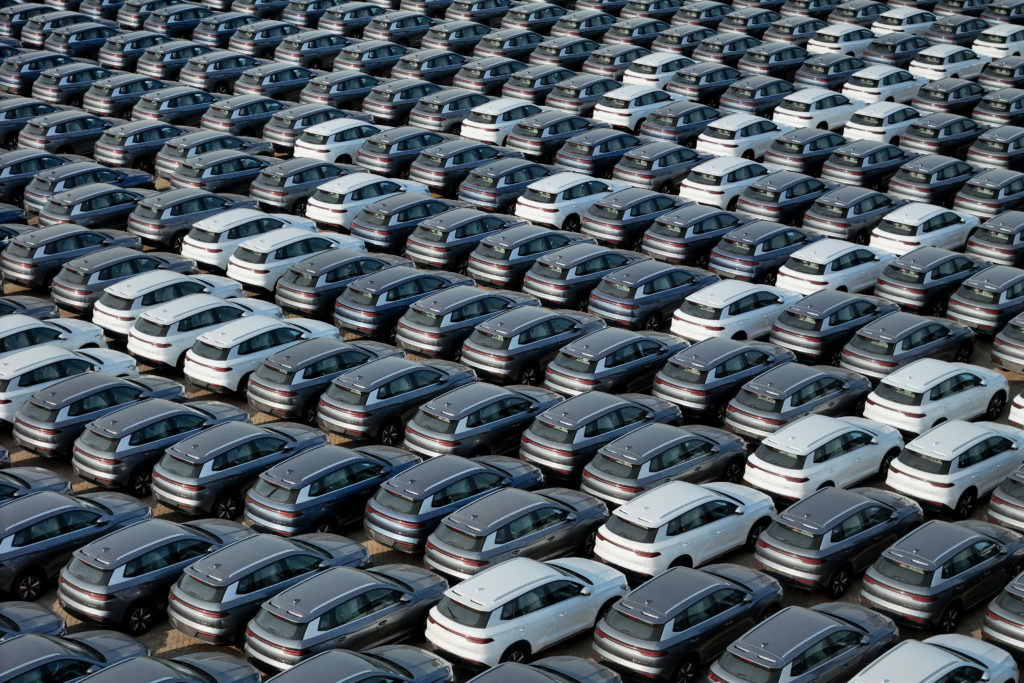Russian missiles struck Vinnytsia in central Ukraine Thursday, killing at least 17 people including a child, in what President Volodymyr Zelensky called “an open act of terrorism”.
The midday attack on the city hundreds of kilometres from the frontlines and invading Russian troops came as EU officials convened in The Hague to discuss war crimes in Ukraine.
The charred remains of several upturned cars were seen in images distributed by officials next to a business gutted by a fire with brown smoke billowing from the impact site.
“At least 17 people have died, including two children. Dozens are injured. Residential buildings, administrative and commercial buildings have suffered significant destruction and damage,” Ukraine’s prosecutor general said in statement.
Zelensky, who had called for a tribunal in The Hague to hold Moscow accountable for war crimes, described Russia as a “killer country” after the attack.
“Every day, Russia kills civilians, kills Ukrainian children, carries out missile attacks on the civilian facilities where there is no military target. What is this, if not an open act of terrorism?” the Ukraine leader said on social media.
– War crimes tribunal? –
In opening remarks at the Hague conference organised by the International Criminal Court and the European Commission, Ukraine Foreign Minister Dmytro Kuleba said Russia should be held responsible for its actions in Ukraine.
“All we want is the crime of aggression to not remain unpunished,” he told EU and ICC officials.
In a later tweet, Kuleba described the Vinnytsia attack as “a war crime”.
The International Criminal Court in The Hague opened an investigation into possible war crimes in Ukraine just days after Moscow’s forces invaded and it dispatched dozens of investigators to the country to gather evidence.
Russia invaded Ukraine on February 24 and the conflict has seen thousands of people killed, destroyed cities and forced millions to flee their homes.
Deadly Russian strikes in central Ukraine have become relatively rare, but the war has raged around cities like Mykolaiv in the south which the presidency said was hit by a “massive missile strike”.
“Two schools, transport infrastructure and a hotel were damaged,” the presidency said in its morning military update early Thursday.
The skeletal insides of one building gutted by the strikes were visible in images distributed by local officials, with municipal workers clearing bricks and rubble strewn after the attack.
The heaviest fighting in Ukraine however has focused recently on the industrial Donbas region in the east.
– ‘Total victory’ –
Moscow-backed troops there said Thursday they were closing in on their next target, after wresting control of sister cities Lysychansk and Severodonetsk two weeks ago.
“Siversk is under our operational control, which means that the enemy can be hit by our aimed fire all over the area,” a pro-Moscow rebel official, Daniil Bezsonov, was cited as saying by Russian state-run news agency TASS.
In a Ukrainian trench position along the eastern frontline, a 25-year-old soldier who goes by the nom de guerre Moryak was working to fortify defences.
“We hide when they shell, we dig when it’s calm,” he told AFP journalists.
A fellow serviceman in their trench dismissed the idea Ukrainian and Russian forces could reach an agreement to halt fighting, explaining their goal was “total victory”.
– High-stakes grain talks –
Several rounds of negotiations to end the fighting at the beginning of the conflict fell through, but delegations from Kyiv and Moscow met in Istanbul this week to discuss unblocking Ukraine’s grain exports.
The high-stakes meeting involving UN and Turkish officials in Istanbul broke up after slightly more than three hours with an agreement to meet again in Turkey next week.
“The success of this story is needed not only for our state, but also — without exaggeration — for the entire world,” Zelensky said in his evening address Wednesday after the talks.
The conflict in Ukraine has pushed up grain prices and Europe is suffering from sky-rocketing energy bills stemming from sanctions on Russia and Moscow’s move to limit gas flows to Europe.
US Treasury Secretary Janet Yellen said Thursday that Russia’s war in Ukraine posed the “greatest challenge” to the global economy, as G20 ministers prepare to start talks in Indonesia.
The European Commission meanwhile slashed growth forecasts for the eurozone, saying the consequences from the war in Ukraine were continuing to destabilise the economy because of record high inflation.
burs-jbr/bp









